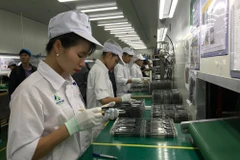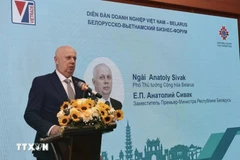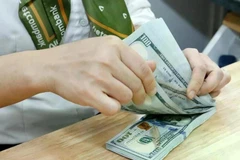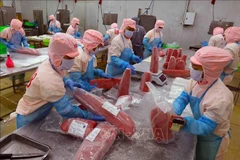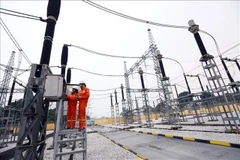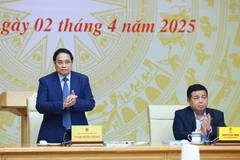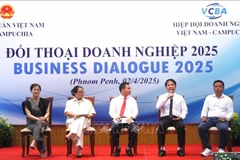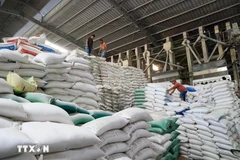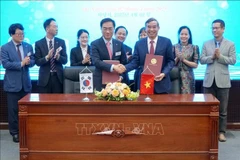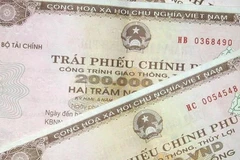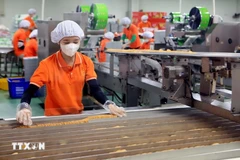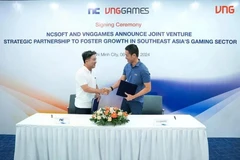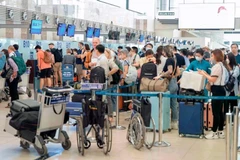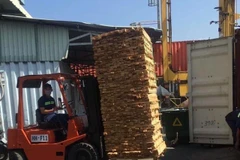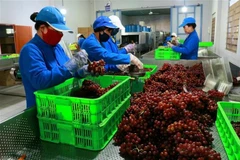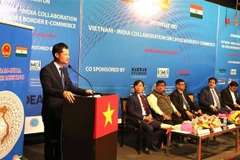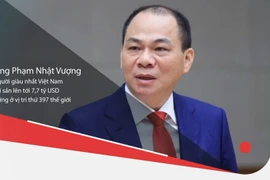Hanoi (VNA) - The EU-Vietnam Free Trade Agreement (EVFTA) and the EU – Vietnam Investment Protection Agreement (EVIPA) were signed in Hanoi on June 30.
Following the EU-Vietnam Framework Agreement on Comprehensive Partnership and Cooperation (PCA), the new pacts marked a milestone for the bilateral economy-trade-investment ties.
In his speech at the signing ceremony, Prime Minister Nguyen Xuan Phuc said amid the challenges facing the global economy, the signing of the EVFTA had a special meaning and showed a strategic vision.
The two economies supplement each other and can work together for a bright future and sustainability, he added.
Embarking on a new period of long-standing, comprehensive and equal partnership
Speaking at the ceremony, Minister of Industry and Trade Tran Tuan Anh said with bilateral trade increasing 10-fold over the past 15 years, Vietnam and the EU are preparing for a new period of economic cooperation.
This is a period of long-standing, comprehensive and equal partnership based on transparent and open principles of a new-generation free trade agreement.
“The road ahead requires significant efforts from Vietnam and the EU. I hope the sides’ spirit and effort reflected through the negotiation process will push for their as-soon-as-possible ratification of the pact,” Tuan suggested.
Romanian Minister for Business Environment, Commerce, and Entrepreneurship Stefan Radu Oprea said the EVFTA will bring opportunities to workers and businesses, particularly in tax reduction and geographical indication.
He noted the EVIPA also comes with important opportunities, including those that help the governments involved monitor their relationships and boost investment ties. EU firms consider Vietnam a key investment destination, the official added.
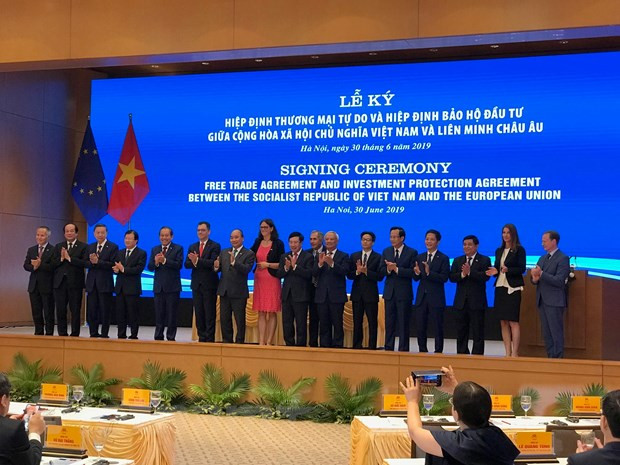 PM Nguyen Xuan Phuc and EU delegates pose for a group photo at the signing ceremony of the EVFTA and EVIPA (Photo: Duc Duy/VietnamPlus)
PM Nguyen Xuan Phuc and EU delegates pose for a group photo at the signing ceremony of the EVFTA and EVIPA (Photo: Duc Duy/VietnamPlus)
As the most ambitious agreements the EU has signed with an emerging economy, the two pacts were built based on both sides’ commitment to trade liberalisation and economic integration toward openness, equality and rule compliance.
They will increase the engagement of the EU in the Southeast Asia, strengthening trade-investment cooperation between the bloc and the ASEAN.
After the signing, the agreement will be ratified by the Vietnam National Assembly and European Parliament, with the EVIPA needing further ratification from parliaments of EU member states.
Committed to effective implementation and strong cooperation
With a strong commitment to implementing the EVFTA and EVIPA, Vietnam and the EU will work closely to ensure both fulfill their duties.
Via a technical support programme, the EU will help Vietnam facilitate reforms and adjustments particularly in food safety, animal quarantine and non-tariff barriers.
Apart from economic benefits, the two agreements also focus on boosting the sustainable development of both sides who agreed on the importance of the EVFTA’s chapter on trade and sustainable growth.
The EU welcomes the Vietnamese National Assembly’s recent progress regarding labour issues, particularly its ratification of the International Labour Organisation (ILO)’s Convention No. 98 on collective bargaining and plan to pass a revised Code of Labour this year.
The bloc also lauded the Vietnamese Government’s plan to submit the ILO’s Convention No. 105 and 87 to the National Assembly to ratify.
The EVFTA and EVIPA are integral parts within the framework set up by the PCA, which adjusts the sides’ overall relations regarding collaboration in development, trade-investment, justice, social affairs and rule of law, among others.
Vietnam and the EU expect to further their work to tap the potential of the ambitious agreements.-VNA
| The EVFTA is a comprehensive, high-quality agreement that balances the benefits for both Vietnam and the EU, and is consistent with the provisions of the World Trade Organization (WTO). It includes 17 chapters, two protocols and a number of memoranda of understanding revolving around such key contents as goods trade (including general provisions and commitments to opening the market), rules of origin, customs and trade facilitation, food hygiene and safety measures, technical barriers to trade, trade-services, investment, trade protectionism, competition, state-owned enterprises, and intellectual property. As for the EVIPA, the two parties pledged to grant investors of each other national and most-favoured-nation treatment. They will ensure fair and satisfactory treatment and complete protection, allow them to transfer investment capital and profits to foreign destinations and not acquire investors' assets without adequate compensation, among others. In case of disputes between one side and investors from the other, the two agree to prioritise resolving via negotiation and reconciliation before applying any settlement mechanisms specified in the EVIPA. |






